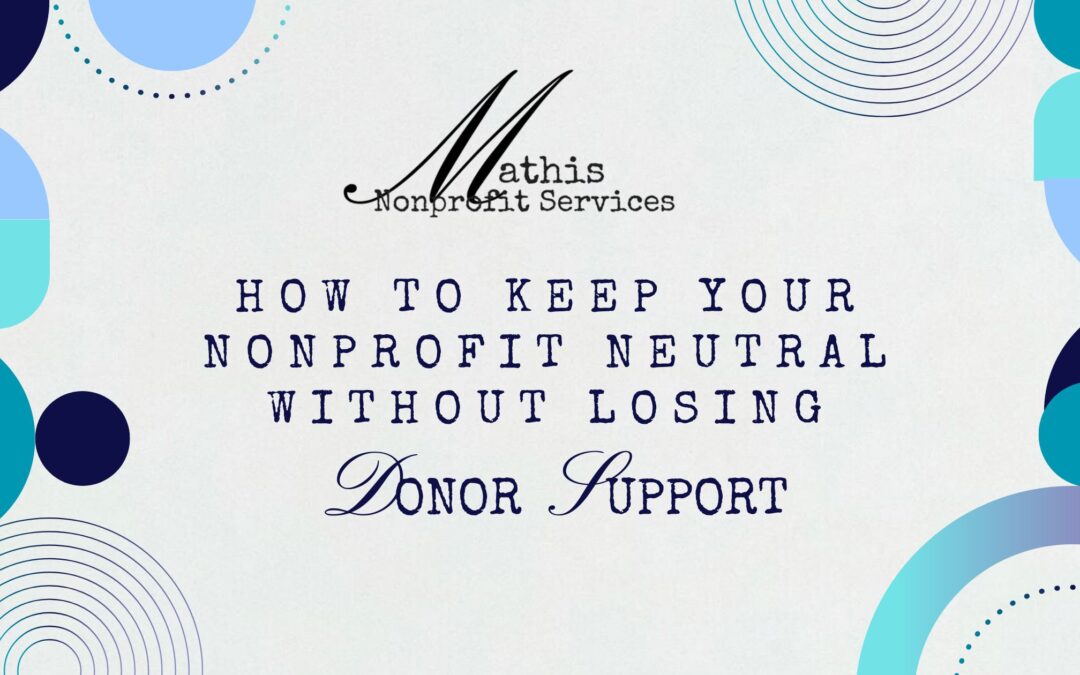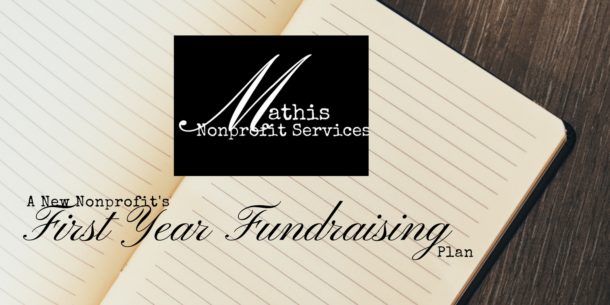Politics are everywhere these days—on the news, in our feeds, and sometimes sneaking into nonprofit communications. That’s why nonprofit neutrality is so important. If your organization appears partisan, you risk losing donor trust and possibly even jeopardizing your mission. The good news? With the right approach, you can stay true to your values and keep donors engaged—without getting tangled in politics.
Why Nonprofit Neutrality Matters
The IRS has strict rules about political activity, but even beyond that, your nonprofit’s reputation is at stake. Donors want to believe their contributions are going toward your mission—not toward a political agenda. If they feel you’re straying into partisan territory, they may hesitate to give again.
Neutrality doesn’t mean silence. It means framing your work around your mission, values, and the change you want to see in the world without aligning yourself with a party, candidate, or ideology. For example, if your nonprofit supports affordable housing, talk about the families you help, the systems that make it difficult to thrive, and the solutions that work. Stay focused on the people, not the politics.
Practical Steps to Maintain Nonprofit Neutrality
Here are some common ways nonprofits unintentionally look partisan:
-
Sharing content that comes from politically loaded sources.
-
Using language that signals alignment with one side of the aisle.
-
Highlighting endorsements from politicians rather than community members or stakeholders.
Instead, center your communications on values that everyone can connect with, such as compassion, dignity, opportunity, or justice. These resonate no matter where your donor falls on the political spectrum.
How Nonprofit Neutrality Protects Donor Trust
Think of it this way: your nonprofit’s job is to invite as many people as possible into your mission. If your language or actions narrow the door to only one group, you shrink your donor pool. By focusing on common ground, you keep your message wide open for anyone who cares about your cause.
And here’s the bonus: when you stay clear on your mission and values, you naturally attract donors who want to fund the work, not the noise.
You Don’t Have to Figure It Out Alone
Balancing messaging, donor relationships, and grant requirements isn’t easy—I get it. That’s one reason I started an accountability group for nonprofit leaders. It’s a space where we can work through these challenges together, share strategies, and keep each other on track without the overwhelm. If you’ve been looking for that kind of support, I’d love to see you there. You can sign up here.


 Most nonprofit leaders lay awake at night trying to figure out how to fund their mission.
Hi! I'm Alesha.
I teach sustainable fundraising in a way that they can take action today so they can serve their clients.
I can help you move from just getting started funding your new nonprofit to gaining confidence in your fundraising and building relationships to knowing what works for your organization and looking at the infinite game when it comes to funding. I’ve worked with nonprofit Founders and written the book I HAVE MY 501(C)3! NOW WHAT?!? Your Blueprint to Starting Your Nonprofit Without Being the Sole Funder that lays the foundations for funding in a new nonprofit.
I’ve worked in Development (Fundraising) Departments in large organizations and I know the no cost, low-cost methods they use to bring in funding. I bring those sound strategies to the nonprofits I serve.
Most nonprofit leaders lay awake at night trying to figure out how to fund their mission.
Hi! I'm Alesha.
I teach sustainable fundraising in a way that they can take action today so they can serve their clients.
I can help you move from just getting started funding your new nonprofit to gaining confidence in your fundraising and building relationships to knowing what works for your organization and looking at the infinite game when it comes to funding. I’ve worked with nonprofit Founders and written the book I HAVE MY 501(C)3! NOW WHAT?!? Your Blueprint to Starting Your Nonprofit Without Being the Sole Funder that lays the foundations for funding in a new nonprofit.
I’ve worked in Development (Fundraising) Departments in large organizations and I know the no cost, low-cost methods they use to bring in funding. I bring those sound strategies to the nonprofits I serve.